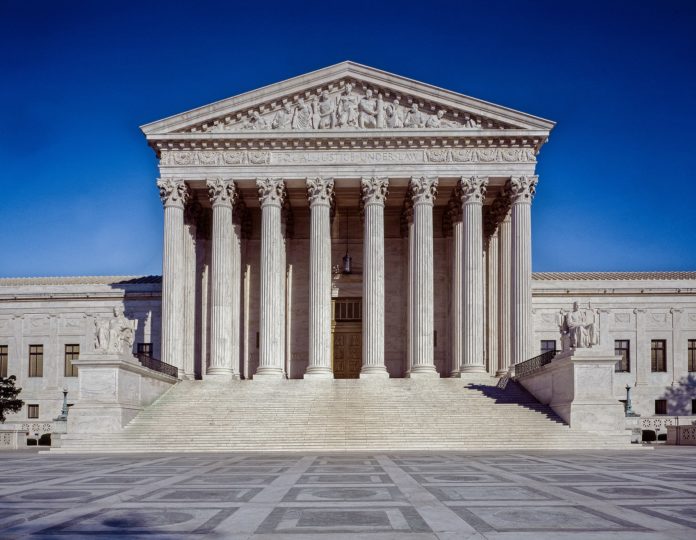
U.S. Supreme Court Justice Neil Gorsuch on July 24 stayed a recent 10th Circuit Court of Appeals decision surrounding municipal court jurisdiction over tribal members in Oklahoma.
The appeals court ruling found that the city of Tulsa, Oklahoma, didn’t have jurisdiction to enforce municipal code violations against members of federally recognized Indian tribes on portions of the city that are within the bounds of a reservation the Supreme Court previously ruled was never disestablished. Tulsa appealed the decision and asked the U.S. Supreme Court to stay the ruling. Gorsuch agreed to stay the decision until Aug. 2.
The appeal comes in the wake of the court’s 2020 ruling in McGirt v. Oklahoma that found Congress never dissolved the borders of reservations in Oklahoma, meaning large portions of the state are considered “Indian Country” under the Major Crimes Act and crimes committed by tribal members on those lands are under federal not state jurisdiction.
Justin Hooper, a member of the Choctaw Nation, paid $150 and pleaded guilty to a traffic ticket he received while driving in a part of Tulsa that falls within land that was part of the Muscogee (Creek) Nation reservation. After the court’s ruling in McGirt, Hooper petitioned a municipal court for post-conviction relief that was denied. He asked a federal court to review the case and issue declaratory judgment to find municipalities like Tulsa didn’t have subject matter jurisdiction over him as a tribal member for actions on tribal land. The district court dismissed his case and found Tulsa’s municipal jurisdiction wasn’t erased by McGirt since the decision didn’t address section 14 of the 1898 Curtis Act that allowed, under certain conditions, for the formation of municipalities within tribal land that can enforce laws and ordinances. Hooper appealed the decision and argued that even though the Curtis Act was not repealed, it no longer applied once Tulsa was reorganized under Oklahoma law.
A panel of the 10th Circuit Court of Appeals agreed with Hooper on June 28. The opinion reasoned that when Tulsa enacted a charter in 1908 in line with the recently created Oklahoma Constitution, it no longer met requirements for municipalities that could be formed on tribal land under the Curtis Act. The 10th Circuit reversed the lower court’s dismissal of the declaratory judgment for failure to state a claim and as moot and directed it to instead dismiss it without prejudice for lack of subject matter jurisdiction. In court documents, Tulsa said it plans to appeal the decision to the U.S. Supreme Court but requested the court prevent the decision from going into effect in the meantime.
Tulsa submitted an application to stay the decision to the U.S. Supreme Court on July 24 and argued the ruling’s mandate that was set to take place July 26 and would’ve exempted tribal members from city ordinance enforcement would endanger residents.
“Inhabitants of these cities are now subject to areas where the laws enacted for the protection of the health and safety of its residents are only enforceable by the City against some citizens but not others. The perceived lack of Municipal Court jurisdiction has already caused Indian residents to challenge and confront Tulsa Police officers at traffic stops,” wrote attorneys for the city in the application, adding enforcement of fire safety and building codes could also be impacted by the 10th Circuit’s decision. According to the application, 95% of the city falls within the boundaries of tribal land.
Gorsuch agreed to temporarily block the decision until Wednesday, Aug. 2 at 5 p.m. EST.
In his response to the application, Hooper’s attorney argued Tulsa shouldn’t be granted a stay pending certiorari review, contending the city would likely not be granted certiorari review, the 10th Circuit’s holding would likely be kept in place if reviewed and the city wouldn’t suffer harm if the decision was kept in place.

